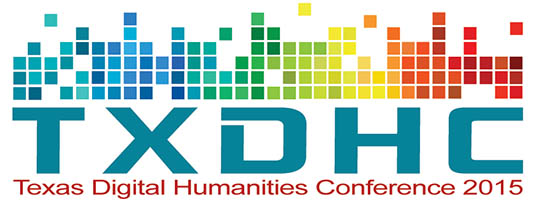Document Type
Presentation
Abstract
A difficult question circulating within emerging digital humanities revolves around pedagogy and asks, “How are digital humanities [ethically] produced?” A subject that naturally intersects with ethics and digital productions is decolonial studies, a sister field with postcolonial studies, each of which share ancestral non-western roots. Born out of anti-colonial resistance literature and the history of the process of decolonization, decolonial scholars search for decolonial “options”: alternatives to capitalistic and monocultural solutions that eventually privilege a minority or reenact some aspect of colonialist behavior. Since 2010, in Middelburg, Netherlands, leading scholars have team taught upper-level and graduate students at the Decolonial Summer School Middelburg: a for-credit seminar style intensive course hosted by the internationally renowned Argentinian semiotician, Dr. Walter Mignolo, of Duke University. In 2011, I had the opportunity to attend this course and film one of my first published interviews for my undergraduate Honors Thesis. I was invited back to continue to film the seminars, and produce a sequel in 2013. It was then I was given all the digital footage of this inter-disciplinary summer course, that has hosted leading postcolonial and decolonial scholars, artists, and activists. Excited by the trust granted to me with over 200 gigs (roughly 50 hours) of raw unedited footage, I received the request to initiate an archive and thereby link my university with Duke and the host school, University College Roosevelt (a branch of Utrecht University). But how does a graduate student proceed with such a large amount of digital media and very few resources to carry out the goal? The De-Archival Collaborative, is a pilot archiving project that does not seek to collect and guard said digital media. Rather, this approach aims to create finished succinct subtitled films of rich content—labeled, organized, and hosted in the most user-friendly and cyber-space efficient manor—while it offers interested undergraduate students the opportunity to learn: how to ethically and responsibly produce films of other professors’ intellectual property; participate in the ongoing research of internationally recognized scholars of multiple fields; gain a mastery of the theoretical and practical aspects of decolonial studies (as well as postcolonial intersections where relevant); while establishing a variety of academically viable skills, and, most importantly, making the teachings, seminars, and performances of these global leaders available to the world via the internet. Thus, a de-archive. This panel presentation, comprised of one graduate student and four undergraduates from multiple disciplines, sets out to reveal the successes and difficulties of the project, to discuss our pedagogical methods and learning processes, goals, and outcomes with conference goers, as well as to give the audience the opportunity for a Q&A with our voluntary undergraduates, whose experience ranges from newcomer freshmen to invested seniors. Along the way, we may even be able to offer one option for producing digital humanities content and will certainly share a few samples of our films, and the process of initiating a digital humanities project.
Disciplines
Arts and Humanities | Digital Humanities
Publication Date
4-11-2015
Language
English
License

This work is licensed under a Creative Commons Attribution-NonCommercial-Share Alike 4.0 International License.
Recommended Citation
Sachs, Rod; Brayner, Rhuda; Carey, Katrina; Dinh, Stephanie; and De La Torre, Sebastian, "De-Archiving Digital Humanities: A Decolonial Option with Undergraduates" (2015). Texas Digital Humanities Conference 2015. 25.
https://mavmatrix.uta.edu/digitalhumanities_conf2015/25

